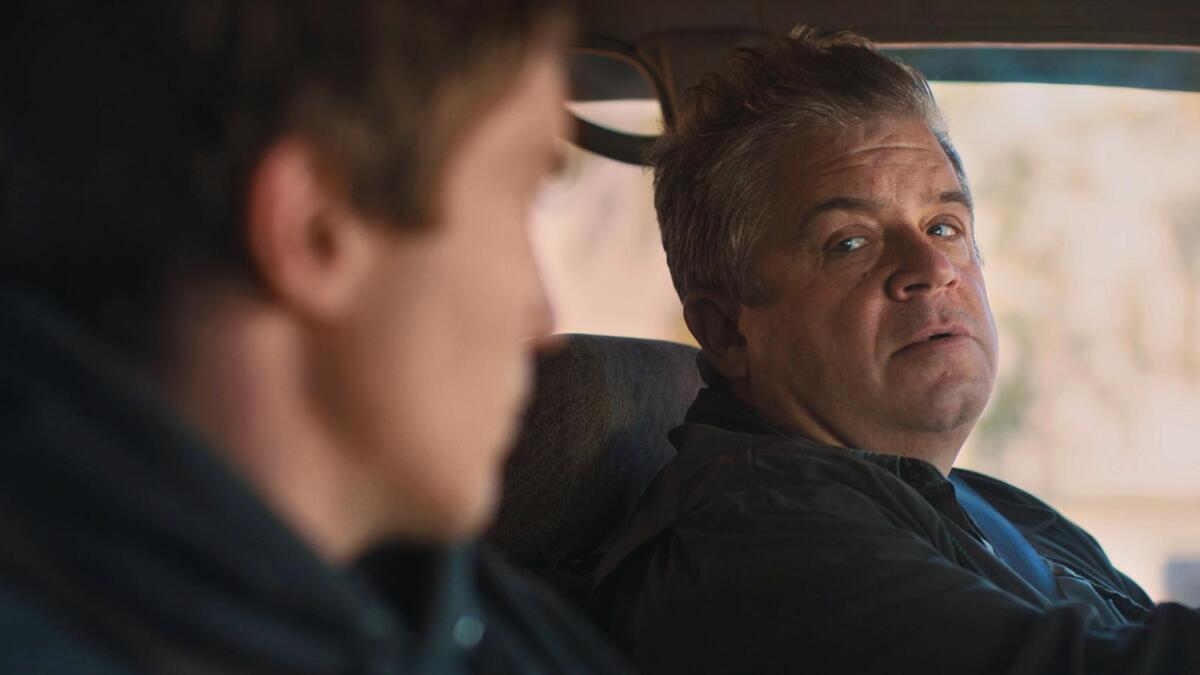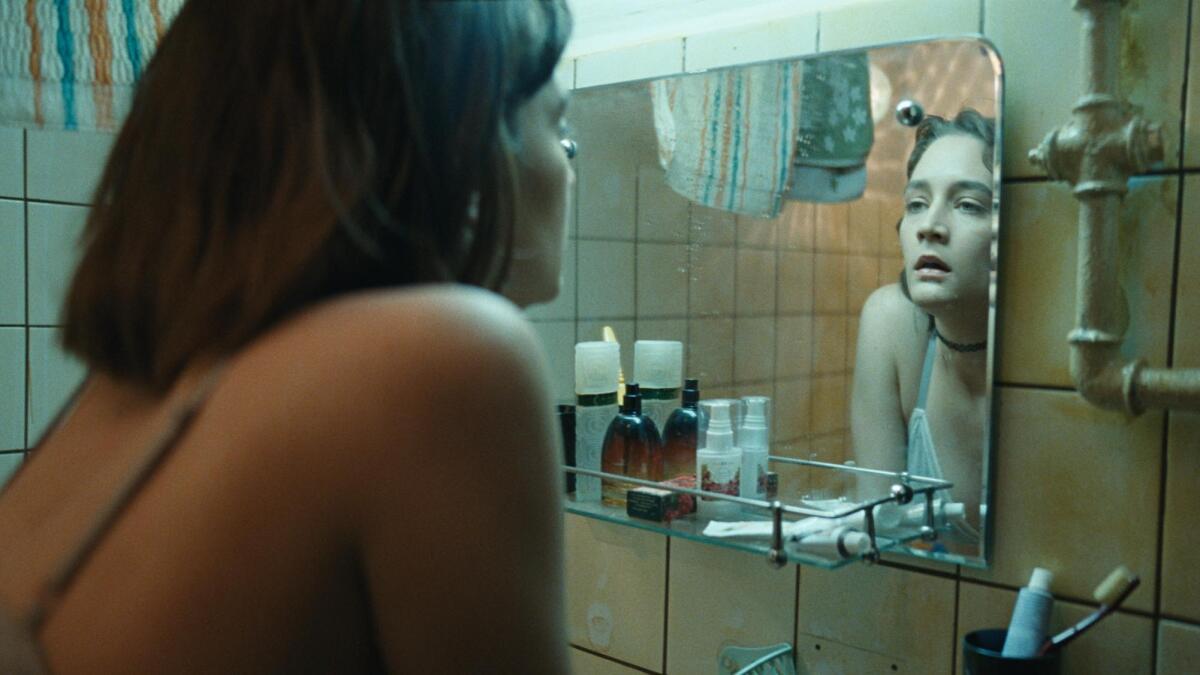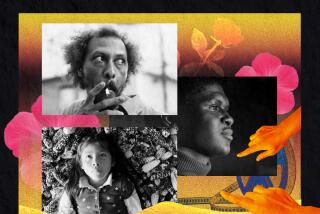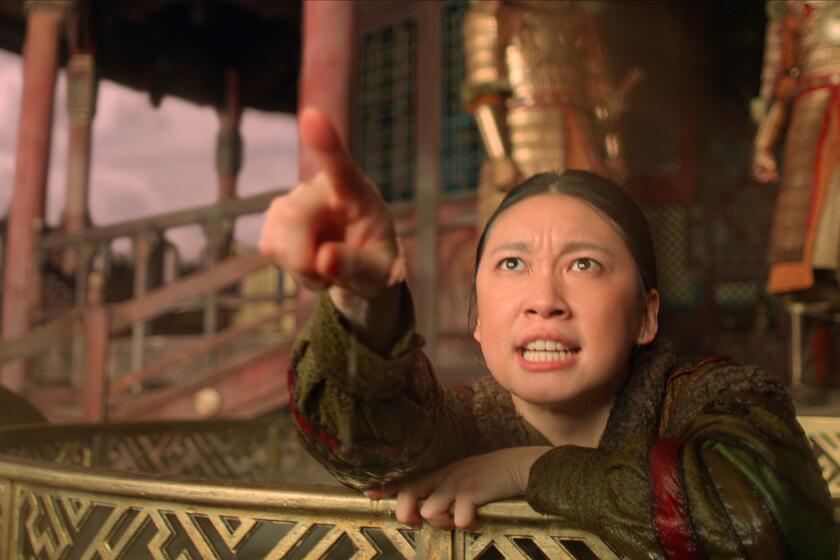At revitalized SXSW Film Festival, moviegoers bask in the ‘universal language’ of cinema

Similar but definitely different. Familiar but not the same.
It’s difficult to pin down how best to describe the first in-person edition of the South by Southwest Film Festival since 2019, returning to its home of Austin, Texas. So much has happened in the time since then, the world has changed, people have changed, that even when the festival hit its sweet spot combining freewheeling entertainment one moment and fresh discoveries the next, it could still feel like a muscle that wasn’t used to being flexed. In introductions to screenings, festival head Janet Pierson repeatedly spoke with delighted surprise about how the “vibe” of the festival was back.
There were starry high-energy premieres such as Michelle Yeoh and Jamie Lee Curtis at “Everything Everywhere All at Once,” Sandra Bullock and Daniel Radcliffe on hand for “The Lost City” and Nicolas Cage and Pedro Pascal with “The Unbearable Weight of Massive Talent.”
It’s an unfortunate fact of SXSW that often those premieres draw attention away from other titles, so that films that should be buzzier breakouts such as the comedy of self-discovery “Spin Me Round,” starring Alison Brie, Aubrey Plaza, Alessandro Nivola and Molly Shannon, or a low-key thriller about the perils of getting older, “The Cow,” with Winona Ryder and Dermot Mulroney, struggle to get noticed amid all that is going on.
One film that combined the best of both sides of the SXSW experience this year was “Bodies Bodies Bodies.” Directed by Halina Reijn, the movie is a classic whodunit murder mystery told with Gen Z upspeak that playfully skewers the ways the language of therapy and woke ideology can be used to mask petty selfishness and oblivious privilege.
Coming out later this year from A24, the film is irreverent and outrageous with something chilling at its core and boasts a tightly woven ensemble including Amandla Stenberg, Maria Bakalova, Pete Davidson, Rachel Sennott, Myha’la Herrold, Chase Sui Wonders and Lee Pace. Sennott, who led the 2020 virtual SXSW breakout title “Shiva Baby,” earned particularly strong notices for what could be an even bigger breakthrough performance.

Awards this year included grand jury winner “I Love My Dad,” written by, directed by and starring James Morosini in a purportedly semi-autobiographical story, about an estranged father pretending to be a young woman online to engage with his son. The catfishing dramedy featured a particularly strong performance by Patton Oswalt as the morally questionable father to Morosini’s character.
A special jury award for extraordinary cinematic vision went to the cast and crew of the moody, Irish thriller “It Is In Us All,” starring Cosmo Jarvis. In accepting the prize, producer Tamryn Reinecke excitedly noted that the project is her film debut as well as the debut for filmmaker Antonia Campbell-Hughes and actor Rhys Mannion, and they were grateful for the encouragement.
A special prize for breakthrough performance went to Elizaveta Yankovskaya in Vasilisa Kuzmina’s “Nika,” the deeply felt fact-based story in which she plays the 20-something Nika Turbina, who as a young child achieved great fame in Russia as a poet and struggles to find direction in her life once she gives up writing and reciting her work.
On the documentary side, the grand jury prize went to Rosa Ruth Boesten’s “Master of Light,” the story of George Anthony Morton, a classical painter looking to restart his life after serving 10 years in prison. A special jury prize for exceptional intimacy in storytelling went to “Bad Axe,” in which filmmaker David Siev explores racism in his own hometown through the struggles of his Asian American family. Another special jury prize for acting in a documentary went to Steve Glew for “Pez Outlaw,” directors Amy Bandlien Storkel and Bryan Storkel’s story of how Glew tried to make a fortune selling rare Pez dispensers.
The festival gave out its awards on Tuesday, but it continues until Saturday’s closing night premiere of the upcoming third season of the FX series “Atlanta.”

The awards only scratched the surface of films that remained to be discovered in the festival’s program. Directed by Morrisa Maltz, “The Unknown Country” combines documentary elements of people encountered along Midwestern highways with a fictional story of a woman grieving her grandmother’s death. At the film’s center is Lily Gladstone, known to some for Kelly Reichardt’s “Certain Women” and soon to be known by many more for Martin Scorsese’s “Killers of the Flower Moon,” a compulsively watchable performer who seems incapable of a false moment and captures the lyrical ambiguities of Maltz’s patient, watchful sensibility.
One film that certainly got people talking was Beth de Araújo’s “Soft & Quiet.” Told in real-time, the film starts with the first meeting of a seemingly innocuous women’s group that reveals itself to be a gathering of white supremacists who quickly escalate to a vile hate crime. The film’s style and story attempt to capture how easily violent rhetoric turns to violent action, with a momentum that builds to some deeply uncomfortable moments that demand to be reckoned with.

Often in the before times, film festivals could become detached from reality, taking place in their own bubble where the outside world receded away. This year at SXSW the events of the rest of the world — some locally in Texas and some across the globe unfolding in Ukraine — never seemed far from many people’s minds. And somehow when the outside world stepped in, it only made the experience of the festival richer and more emotional. Nowhere was that more apparent than when Kuzmina, the Russian director of “Nika,” accepted the acting prize on Yankovskaya’s behalf during the festival’s awards ceremony.
“I would actually say that this is the moment I have been dreaming of my whole life,” said Kuzmina, “but we can’t ignore the fact that right now in Ukraine it’s a human tragedy. Our hearts our broken. I would just like to say it out loud.
“I was really proud that our film was made mostly by females and played by females. It’s extraordinary because female voices always stand for equality, they stand for peace, they stand for humanity,” said Kuzmina. “I believe that cinema is the universal language that will help us to communicate and unite us all, but not divide, and can speak directly to our hearts.”
More to Read
Only good movies
Get the Indie Focus newsletter, Mark Olsen's weekly guide to the world of cinema.
You may occasionally receive promotional content from the Los Angeles Times.











